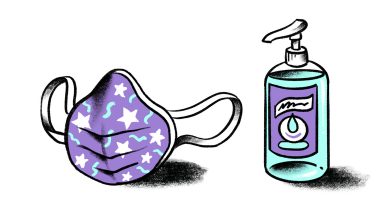5 Eco-Friendly Habits That Improve Your Health
Everyone wants to be more environmentally friendly, but not everyone knows how to begin. Switching to green living has a connotation that it’s only for wealthy people, but that couldn’t be further from the truth. You can make small changes in your life to promote a healthier, greener lifestyle moving forward.
Eco-Friendly Habits to Start Today
If you want to contribute to a greener world, you don’t need an excess of time and money. You can make small changes in your life to reduce the waste your household creates and improve your health while you’re at it.
1. Start a Compost Bin
While this may require some initial work — such as looking into your city’s composting rules — it could benefit your family if you’re prone to wasting leftovers and letting food spoil.
Compost bins directly contribute to a greener lifestyle because they create healthier, more nutrient-rich soil that you can use for plants or to more effectively grow crops. Tossing your compostable food in the bin also reduces the amount of waste that goes to landfills.
Additionally, knowing that you can compost certain foods you don’t eat can encourage you to cut back on processed foods and steer you toward whole foods, which will be better for your health in the long run. Eating a cleaner diet with foods that can be composted benefits both your family and the environment.
2. Conserve Your Water
The average household uses around 300 gallons of water every day. One of the easiest ways to cut back on water usage is by taking showers instead of baths. Though a nice bath is tempting, you don’t need to make a habit of it if you’re worried about wasting water.
Alternatively, you could choose to take cooler showers to conserve the energy it takes to heat the water. Cold showers have been known to improve circulation and metabolism, too.
Additionally, you could choose to save dirty laundry for when you have enough for a full load instead of just one or two items. Unless those garments need to be washed differently, you can wait to throw them in the laundry until you have more clothes that need washing.
3. Support Sustainable Businesses
You should invest your money in places it matters most, like local and sustainable shops. Your budget always has room for sustainable spending — you may just have to cut back your purchases of other things or reconstruct how you’re spending on the necessities.
Do an audit of your finances and see if you’re spending valuable money in places it doesn’t need to go. Could dining out less or opting for more cost-effective insurance save you some money that you could invest back into your community? Most state marketplaces and employers have health care options to choose from, some of which may reduce your monthly cash outlay.
Reevaluating your financial priorities allows you to support brands that care for the environment first. Consider shopping secondhand for your clothing. Similarly, organic foods may cost a little more than non-organic foods, but the quality is better. You’ll be putting more quality into your system by buying only organic.
4. Clean Responsibly
Common household cleaners are littered with toxins that can be harmful to your family and your pets. You can opt for a greener solution by supporting non-toxic brands, or you could even make your own cleaners out of materials you already have around the house.
Ingredients like vinegar and natural acids from fruits can be commonly found in homemade cleaners. Make sure to put any solutions you make in reusable glass bottles — you can use them over and over, and it saves you money in the long run.
You should switch to cotton cloths for your cleaning, if possible. Though microfiber cloths are great at getting and keeping things clean, these fibers contribute to pollution in greater amounts than you might suspect. Besides, if keeping your family healthy is the goal of cleaning, cotton cloths can be rewashed and used again and again.
5. Walk More Often
Everyone knows of the dangers of burning fossil fuels. If possible, skip the car or cab, take the scenic route, and walk through nature to get to your destination. If where you’re going allows dogs, you might consider bringing your pup on a jog with you. Walks can promote many aspects of health. And if you don’t get any other exercise throughout the day, it’s a great way to make you feel good.
If you don’t live in an urban area, it might be harder to make this habit stick. If available, you could take a bicycle instead. You’ll release energy and get your workout in without having to go somewhere on foot.
Sometimes, it’s unavoidable to use cars. Just be sure to do it sparingly if the option is available to you — or use public transportation or a carpool system.
Your Sustainable Lifestyle Begins Now
Though it might take some getting used to, you can commit to a sustainable life by changing just a few of your habits. Switching to a more eco-friendly lifestyle will benefit you in numerous ways, from your nutrition to the exercise you do. Switching to green living is for the whole family, and you’ll be surprised by how much of a difference you can make.




